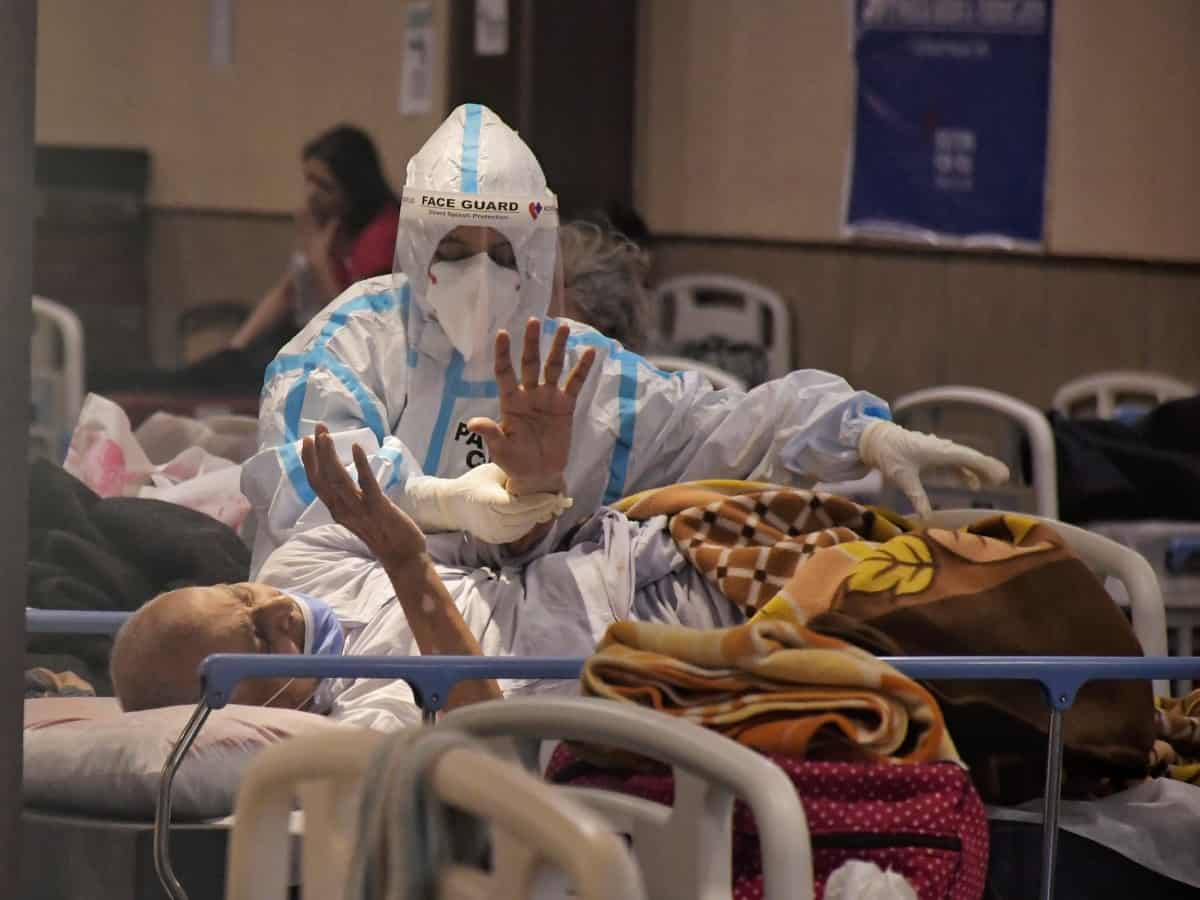Hyderabad: The second wave of COVID-19 infections is flagging various complications among those affected, including several pulmonary and neurological, during the infection or post-recovery. Among those, a rare fungal infection called mucormycosis is being widely reported.
Mucormycosis is a very rare infection caused by exposure to mucor mold which is commonly found in soil, plants, manure, and decaying fruits and vegetables. It is colloquially known as ‘black fungus’.
Mucormycosis is a battle within a war of COVID-19. It can occur either concurrent to the COVID-19 infection or in the early post-recovery phase. It can affect the eyes and brain, warned Dr Tarjani Vivek Dave, Senior Ophthalmologist at L.V. Prasad Eye Institute.
Dr Dave informed that patients with pre-existing poorly controlled diabetes are more at risk for Mucormycosis. He also said that the second wave of COVID-19 which India is currently witnessing is far more severe with an increase in the incidence of the ‘black fungus’.
Even though the fungus is present in the oral and respiratory lining of healthy individuals, it does not manifest an infection in the presence of a healthy and intact immune system. Generally, this infection occurs in patients with uncontrolled diabetes, ongoing cancer chemotherapy, on-term steroid therapy, following an organ transplant, extensive burns, and polytrauma (severe injuries).
According to Dr Dave, the COVID-19 virus causes a reduction in the lymphocyte (white blood cell levels) in the body. White blood cells are the body’s first line of defense against infections. Its failure allows for Mucormycosis to attack the body and spread in the body tissues. Certain drugs called ‘immunomodulators’ which are used to treat severe cases of COVID-19 can cause ‘immunosuppression’. This could be one of the reasons for the growing black fungus.
The doctor said that the common symptoms of Mucormycosis are any kind of facial pain, pain over the sinuses (cheekbones), stuffy nose, blood-stained or black nasal discharge, drooping of the upper eyelid, unusual bulging of the eyes, restricted movement of the eyeball, sudden redness and extreme swelling over the eyeball, sudden decrease in the vision, black lesions on the palate or dental pain. If any such symptoms are noticed, the patient should immediately consult a specialized eye surgeon, preferably an Oculoplastic specialist. Alternatively, an ENT surgeon can also be consulted. Patients can also avail themselves of teleconsultation if they are in isolation or under hospital admission.
Early and localized infections can be treated with the local antifungal injections, followed by a long course of oral antifungal medications. Extensively spread infections require aggressive sinus surgery to clear the internal contents of the cheekbones and injections behind the eye. In a lot of these cases, unfortunately, the entire eyeball must be removed to contain the infection and avoid fatality.
To reduce the risk of contacting Mucormycosis, the patients can consult their treating physician to ensure good control of blood sugar both during and after recovery from COVID-19. Mucormycosis is a very invasive infection with significant morbidity and mortality, Dr Dave cautioned.
So far, in Telangana, the black fungus was found in at least 70 patients and killed six of them, reports said. Early recognition of the mucormycosis’ symptoms is crucial, experts said, as the fungal disease has over 50 per cent mortality rate.

